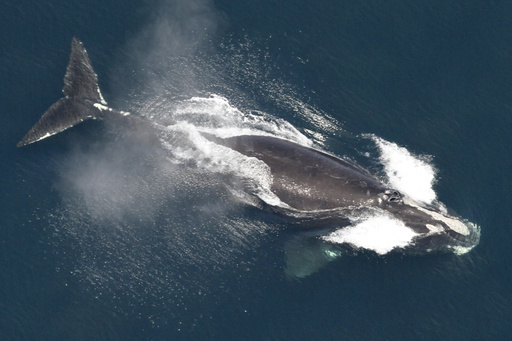In Portland, Maine, federal authorities have announced funding to support the development of ropeless gear in commercial fishing industries, such as lobster and crab fishing, to protect North Atlantic right whales. With less than 360 of these whales remaining, they are endangered due to entanglement in fishing gear and collisions with large ships. The National Oceanic and Atmospheric Administration stated that nearly $10 million will be allocated towards saving right whales, with a significant portion supporting the development of ropeless gear by involving fishing industry members in assessing and providing feedback on the technology.
Traditionally, lobster fishing involves traps connected to the surface with vertical lines, but ropeless fishing methods aim to mitigate risks by using alternative systems like inflatable lift bags to bring traps to the surface. Janet Coit, the assistant administrator for NOAA Fisheries, emphasized the importance of collaborative efforts to aid in the recovery of the endangered species. Additionally, part of the funding, approximately $3 million, will go towards enhancing modeling and monitoring efforts related to right whales. Duke University’s Marine Geospatial Ecology Lab will receive over $1.3 million to develop a real-time modeling system to predict the distribution of right whales along the East Coast.
The urgency for conservation measures comes as several right whales have died this year, some displaying signs of entanglement in fishing gear. Coit expressed concern over the declining population of the species, noting there are fewer than 70 reproductively active females remaining. These whales migrate annually between calving grounds off Florida and Georgia to feeding grounds off New England and Canada, facing risks from warming ocean waters that push them out of protected areas in search of food.
To protect both the whales and the lobster population, commercial fishermen already adhere to stringent regulations, and more measures are anticipated. While some fishermen question the practicality of ropeless gear, others have collaborated with government agencies to test its feasibility in the industry.


